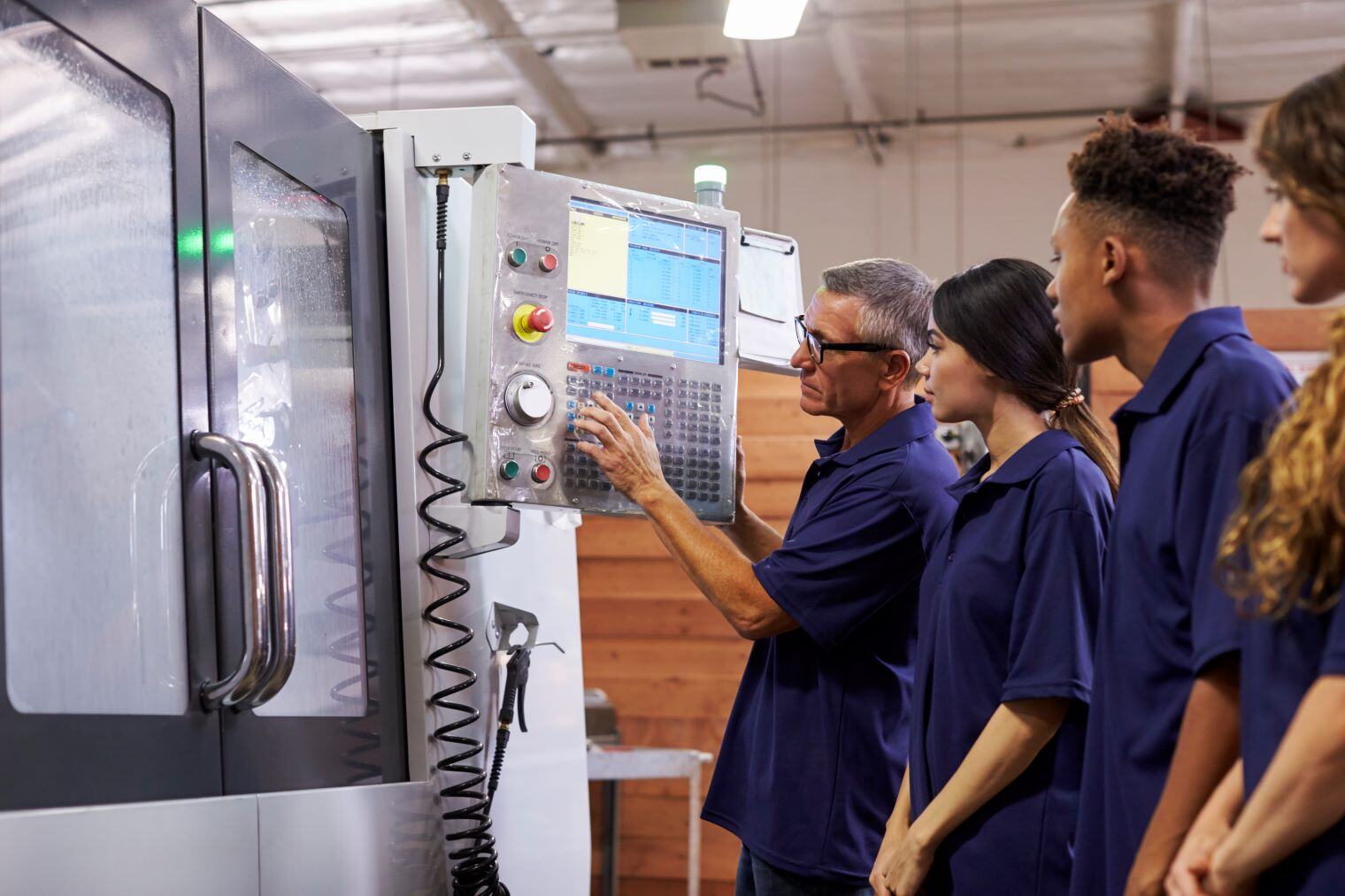How the 2024 Election spotlighted the Bias Against Skilled Trades

Post Categories
Timpl Marketing
The 2024 presidential election has ended, with Donald Trump elected as president, but the buzz is far from over. Social media is lighting up with discussions on the demographics of each candidate's supporters—Trump and Kamala Harris—and voter education levels are at the heart of it all. Data reveals that 63% of Trump voters never attended college, compared to only 31% of Harris voters, making it clear that Democratic voters are more likely to hold college degrees. This has become a trending topic online, repeatedly shared with a common assumption that “going to college and beyond” equates to “intelligence”—and it’s exactly this bias that we’re here to address.

(Source: NBC News)
This belief has spun off a stereotype that can be surprisingly damaging: the idea that those in blue-collar or “hands-on” jobs aren’t as intelligent as people with degrees. But this assumption is not only misguided; it’s also harmful, especially when it discourages young people from considering skilled trades as rewarding career paths. In this blog, we’ll explore why this bias is unfounded and discuss the importance of recognizing the value of diverse career paths and skills.
1. Intelligence Isn’t Measured by Degrees
A college degree is often seen as the ultimate proof of intelligence and success, but this perspective is pretty narrow and misses out on what intelligence really means. Intelligence isn’t just about academics; it’s multifaceted, covering skills like problem-solving, creativity, spatial awareness, and adaptability—skills that skilled tradespeople use every day.
Research supports this broader view of intelligence. Take, for example, Howard Gardner’s theory of multiple intelligences, which highlights types like spatial, bodily-kinesthetic, and interpersonal intelligence—skills often essential in trades but less emphasized in traditional schooling. Think about carpenters: they have strong spatial intelligence, able to visualize and build finished products from raw materials. Electricians? They rely on logical and mathematical intelligence to safely navigate complex circuits. These skills are just as valid as those learned in classrooms, even if they don’t come with a diploma.
Another important piece often overlooked is experiential learning. Studies show that hands-on learning can actually build stronger problem-solving abilities. According to a report from the National Center for Biotechnology Information, people who learn through apprenticeships or technical training retain and apply their knowledge more effectively because they use it in real-world situations. So, when an HVAC technician figures out why a system isn’t working, or a welder tweaks their technique based on the type of metal they’re using, they’re using practical intelligence that can’t be learned from books alone.
Skilled trades also require a constant commitment to learning and adapting. Many trades evolve with technology and regulations, and the best professionals stay updated through certifications, on-the-job training, and self-study. This continuous learning challenges the notion that intelligence is tied to a four-year degree; instead, it reflects one’s drive to grow, apply new knowledge, and adapt in a changing world.
2. The Economic Impact of Ignoring Skilled Trades
Here’s why this bias goes beyond just hurt feelings. When we dismiss skilled trades as “less than,” fewer young people enter these fields, leading to shortages in essential jobs. For instance, the U.S. expects to need 85,000 more electricians by 2031. Each time we push talented people away from these careers, we’re making it harder (and more costly) to keep critical industries running smoothly.
Skilled trades have also evolved; today’s trade jobs involve cutting-edge tools, software, and techniques. By reinforcing outdated stereotypes, we aren’t just being unfair—we’re actually stifling industry progress and the chance to innovate.
3. Skilled Trades Are Smart Career Moves
Intelligence might not be as important as making smart decisions—after all, even the most intelligent people can make poor choices in life. Ultimately, our decisions shape who we are and what we become.
Choosing a skilled trade is a smart move. There are many reasons to pursue a skilled trade career.
For young people making career choices, skilled trades offer something invaluable: financial stability, lower student debt, and meaningful work. According to the Association for Career and Technical Education, tradespeople often start at over $50,000 a year, with the potential to earn six figures as they gain experience—all without the hefty student loans tied to traditional college degrees.
To build a balanced workforce, we must challenge these biases. A career path should not be judged as “better” or “worse” based on whether it requires a degree. Skilled trades provide solid pay and job security, making them a smart choice. If more young people embraced these paths, everyone would benefit.
The bonus section:
Misconceptions about skilled trades are common, especially among younger generations, who may view these careers as less prestigious or rewarding than degree-required jobs. In his latest video, Tony Moore explores 10 misconceptions about skilled trades that might discourage Gen Z and others from these essential roles. His insights show how we can bridge the perception gap, highlighting the intelligence, skill, and potential these careers offer.
By breaking down these stereotypes, we help young people see skilled trades as valuable, challenging, and rewarding career choices.
In Summary
The bias against skilled trades is outdated, inaccurate, and counterproductive. It overlooks the expertise and intelligence these jobs demand, and it slows down our economy by scaring potential talent away. By changing our views, we allow young people to make career choices that fit their skills and passions. Skilled trades are valuable, challenging, and smart career options that strengthen our society and prepare us for the future. Let’s start seeing them that way.
Check out Top 5 highest-paying trade jobs without a degree and once you are ready for your next jobs, find your possibilities with Timpl.


